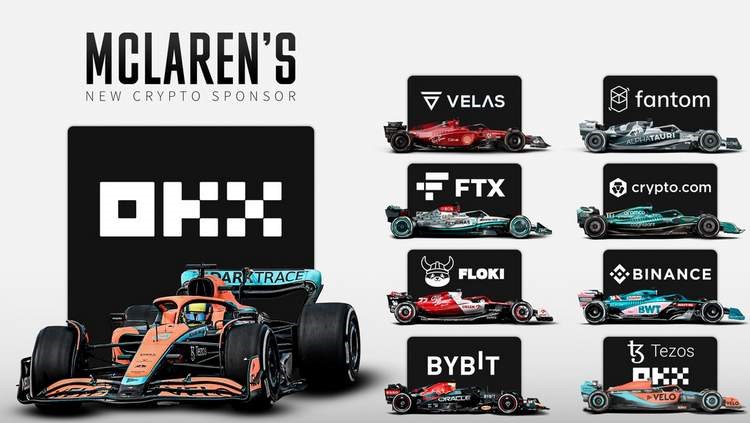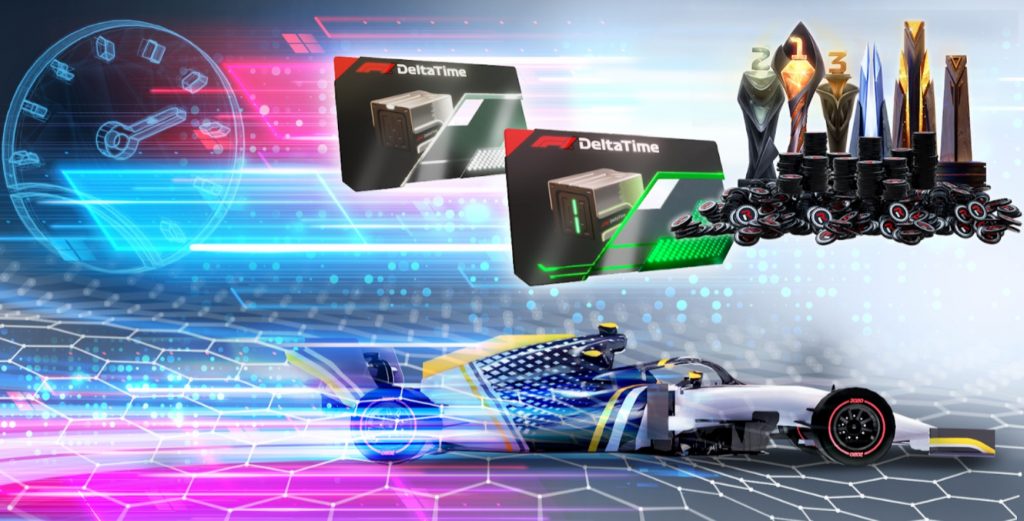
Crypto Racing: The Future of Blockchain-Powered Motorsports
By Deeprivermedia
- News ,
- 06 Jul
In the dynamic world of cryptocurrency, new and innovative applications are constantly emerging, capturing the imagination of both tech enthusiasts and investors. One of the latest trends making waves is crypto racing—a fusion of blockchain technology and motorsports. This article delves into the concept of crypto racing, exploring how it works, its impact on the gaming and racing industries, and what the future might hold for this exciting new frontier.
What is Crypto Racing?
Crypto racing is a genre of blockchain-based gaming that combines the thrill of traditional motorsports with the decentralized nature of cryptocurrency. It involves virtual racing games where players can own, trade, and race digital cars represented by non-fungible tokens (NFTs) on blockchain platforms. These digital assets are unique, verifiable, and can be bought or sold on various marketplaces.
Unlike traditional racing games, where in-game assets have no real-world value, crypto racing allows players to earn, trade, and invest in digital assets with real monetary worth. This integration of blockchain technology into the gaming world creates an entirely new economy where players can profit from their in-game activities.
How Does Crypto Racing Work?

At the heart of crypto racing is blockchain technology, which ensures transparency, security, and true ownership of digital assets. Here’s how the process generally works:
- NFT Cars: In crypto racing, each car is an NFT, a unique digital asset stored on a blockchain. These NFTs can vary in rarity, performance, and design, with some being more valuable or sought-after than others.
- Tokenized Economy: Players use cryptocurrency to purchase, upgrade, and race their NFT cars. The value of these cars can fluctuate based on factors like rarity, performance, and market demand. Players can also earn tokens or cryptocurrency as rewards for winning races or completing challenges.
- Racing and Competitions: Players can enter their NFT cars into virtual races against other players. These races may involve various levels of skill, strategy, and luck. The winners receive rewards, which can be in the form of cryptocurrency or additional NFTs.
- Marketplace: Players can trade their NFT cars and other in-game assets on decentralized marketplaces. The value of these assets is determined by supply and demand, similar to real-world collectibles or cryptocurrencies.
Popular Crypto Racing Platforms
Several platforms have emerged at the forefront of the crypto racing phenomenon. Here are a few of the most notable:
- Rev Racing: Developed by Animoca Brands, Rev Racing is one of the most prominent crypto racing games. It allows players to own, trade, and race NFT cars using REVV tokens, the platform’s native cryptocurrency. The game features a robust marketplace where players can buy and sell their cars, and the racing experience is enhanced with high-quality graphics and gameplay mechanics.
- Zed Run: Zed Run is a blockchain-based horse racing game where players can own, breed, and race digital horses. Each horse is an NFT with unique traits and characteristics, and players can participate in races to earn rewards. While not a traditional car racing game, Zed Run has garnered significant attention and has a similar concept to crypto racing.
- F1 Delta Time: Another creation of Animoca Brands, F1 Delta Time is a Formula 1 racing game that allows players to own licensed F1 cars, drivers, and components as NFTs. Players can participate in time trials and Grand Prix events, with rewards distributed in REVV tokens. The game’s official partnership with Formula 1 adds an extra layer of authenticity and appeal.
The Appeal of Crypto Racing
Crypto racing has gained popularity for several reasons:
- True Ownership: In traditional gaming, players do not own the in-game assets they purchase. However, in crypto racing, players have full ownership of their NFT cars and other assets. This means they can trade, sell, or use their assets across different platforms, providing greater value and flexibility.
- Monetization Opportunities: Crypto racing introduces a new way for players to earn money through gaming. Whether by winning races, trading NFTs, or even renting out their digital cars, players can monetize their in-game activities in ways that were previously impossible.
- Community and Competition: Crypto racing games often feature vibrant communities where players can interact, trade, and compete with one another. The competitive nature of racing, combined with the potential for financial gain, creates a highly engaging and immersive experience.
- Innovation and Technology: For tech enthusiasts, crypto racing represents the cutting edge of blockchain technology and gaming. The use of smart contracts, decentralized platforms, and NFTs adds layers of complexity and innovation, attracting those interested in the future of digital ownership and decentralized finance (DeFi).
Challenges and Considerations
While crypto racing offers exciting possibilities, it’s important to consider some of the challenges and risks associated with this new trend:
- Market Volatility: The value of NFTs and cryptocurrencies can be highly volatile, with prices fluctuating based on market trends, player demand, and broader economic factors. Players should be aware that the value of their digital assets can change rapidly.
- Regulatory Uncertainty: The regulatory landscape for cryptocurrencies and NFTs is still evolving. Changes in regulations could impact the legality and operation of crypto racing platforms, potentially affecting players’ investments.
- Technical Barriers: Participating in crypto racing requires a basic understanding of blockchain technology, cryptocurrency wallets, and digital marketplaces. For newcomers, these technical aspects can be a barrier to entry.
- Security Risks: As with any online platform, there are risks associated with security and fraud. Players should take precautions to protect their digital assets, such as using secure wallets and being cautious of phishing scams.
The Future of Crypto Racing

The future of crypto racing looks promising, with continued growth and innovation on the horizon. As more players and developers enter the space, we can expect to see new games, features, and platforms emerge, further enhancing the crypto racing experience.
One potential development is the integration of virtual reality (VR) and augmented reality (AR) into crypto racing games, providing even more immersive and interactive experiences. Additionally, as blockchain technology becomes more mainstream, we may see increased collaboration between traditional motorsports organizations and crypto racing platforms, further blurring the lines between virtual and real-world racing.
Moreover, the rise of the metaverse—a digital universe where users can interact, work, and play in a fully immersive environment—could play a significant role in the future of crypto racing. In the metaverse, players could race their NFT cars in fully realized digital worlds, competing in events that transcend traditional gaming boundaries.
Crypto racing is more than just a trend; it’s a glimpse into the future of gaming, digital ownership, and decentralized economies. By combining the excitement of motorsports with the innovation of blockchain technology, crypto racing offers players a unique and potentially lucrative experience.
As the industry continues to evolve, those who embrace crypto racing early on may find themselves at the forefront of a new digital frontier, where the lines between gaming, investing, and technology continue to blur. Whether you’re a seasoned crypto enthusiast or a newcomer looking for the next big thing, crypto racing is an exciting space to watch—and participate in—as it races towards the future.



